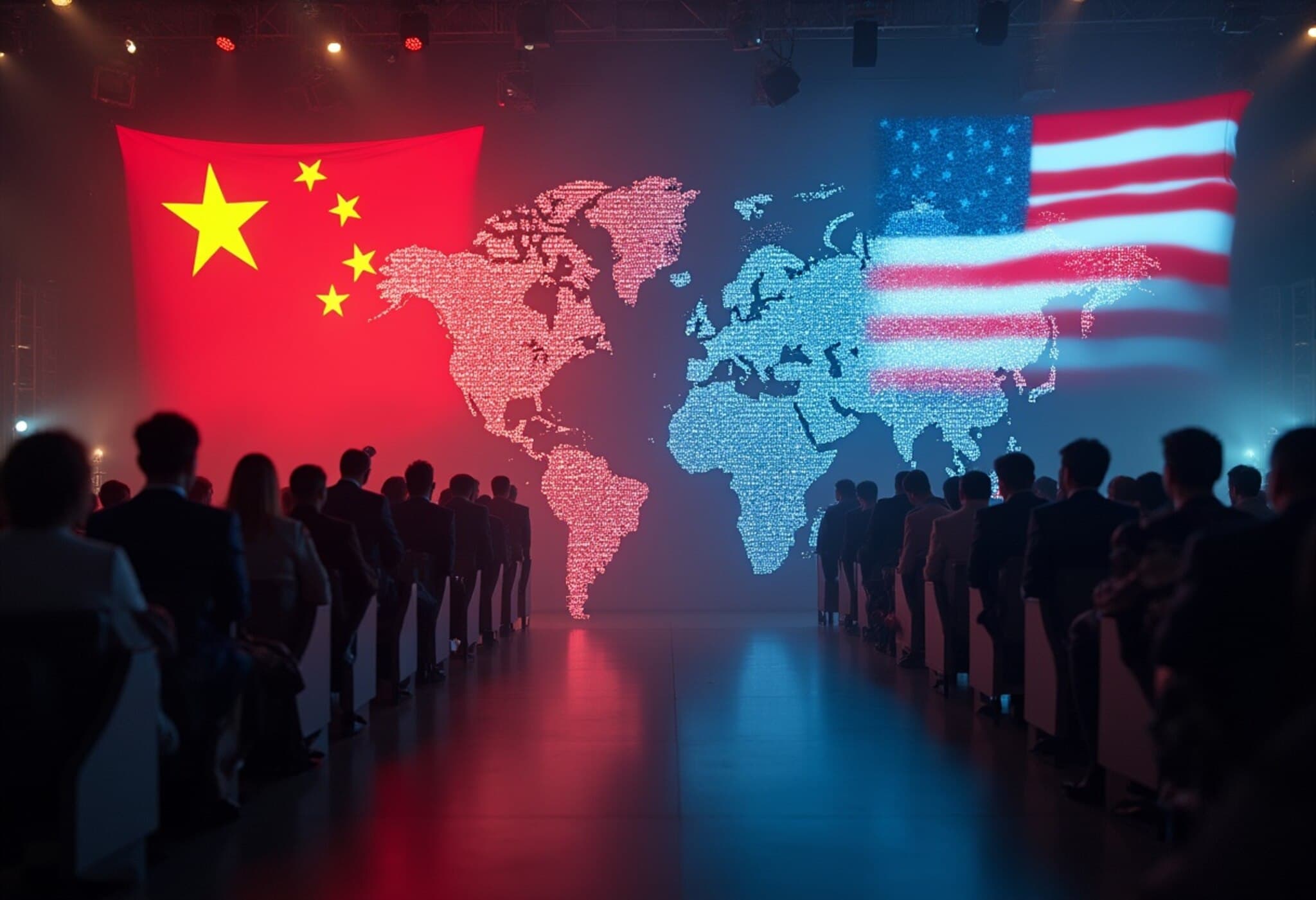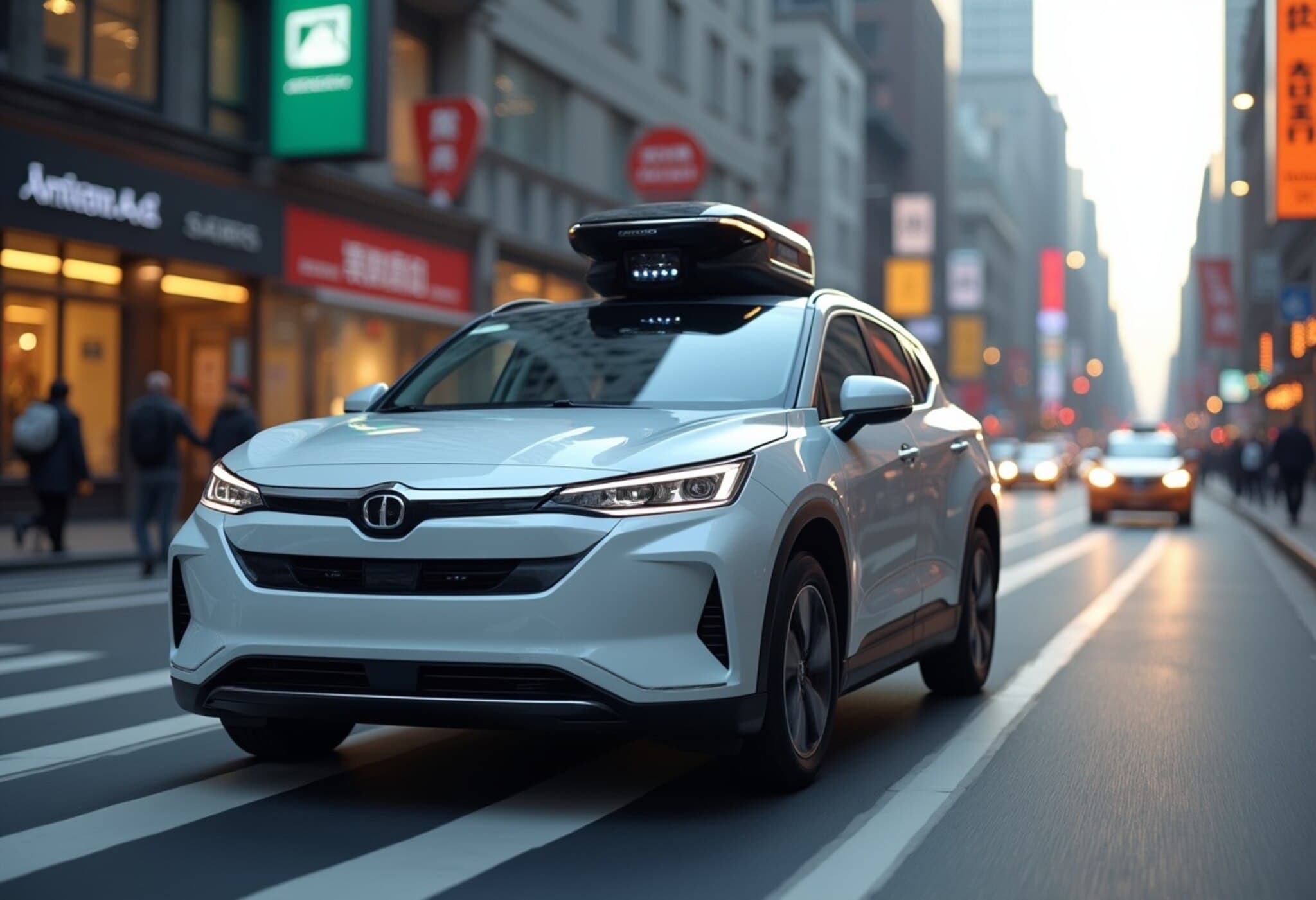Apple's Blockbuster Win with "F1" and Underlying AI Struggles
In a striking contrast that underscores both Apple's innovative strengths and strategic challenges, the tech giant experienced a cinematic triumph and an AI quandary within a single month. Apple's latest original film "F1" debuted to a staggering $155 million globally during its opening weekend, signaling a potent validation of Apple TV+'s steady growth and Apple's mastery in cultivating cultural impact through long-term investment.
Yet, while "F1" captured hearts and box office numbers, Apple’s unveiling of AI advancements at its 2025 Worldwide Developers Conference (WWDC) evoked lukewarm market enthusiasm, revealing persistent hurdles in Cupertino's artificial intelligence strategy.
"F1": A Cinematic Victory Lap Rooted in Patience and Vision
Apple’s Hollywood odyssey, often viewed skeptically at its inception, has matured into a formidable arm of its bustling services division. When Apple TV+ launched in 2019, it boasted a scant original catalog and barely a footprint in the blockbuster realm. Fast forward six years, the studio’s perseverance and expanding foothold in Culver City have unlocked fruitful collaboration with Hollywood elites.
- Apple leveraged its extensive marketing prowess, sending targeted push notifications to promote ticket sales.
- High-profile endorsements included CEO Tim Cook appearing alongside Brad Pitt and F1 champion Lewis Hamilton, a producer of the film.
- This synergy between tech and celebrity helped "F1" surge in a prime summer release window.
As Comscore's senior media analyst Paul Dergarabedian notes, "Nothing breeds success or inspires future investment like a current success." Apple’s ability to align entertainment and technology arms illustrates how careful strategic planning can transform a brand’s cultural resonance and financial health.
Services: More Than Just Movies
While "F1" is emblematic, Apple's services business extends far beyond entertainment. This division encompasses:
- Digital payments and subscriptions (Apple Music, iCloud, gaming bundles)
- Advertising revenue streams
- Hardware-related service fees and warranty plans
Apple’s services generate over $1 billion in sales daily, dwarfing individual box office hits in scale but lacking their celebrity magnetism. "F1" represents an uncommon bridge, giving Apple a Hollywood brand-building outpost few tech companies can match.
Artificial Intelligence: Cupertino’s Pressing 'Check Engine' Warning
In stark contrast to "F1’s" roar, Apple's AI initiatives sparked concern at the WWDC keynote. Despite early promise and a history of product excellence, Apple’s voice assistant Siri remains stagnantly behind competitors, trapped in an outdated Q&A paradigm rather than leveraging next-generation conversational AI.
- Apple previewed a revamped Siri in 2024, but key features are now postponed to 2026, leaving a notable silence on AI innovation progress.
- Rivals like Google and Amazon have aggressively integrated advanced AI assistants, often trading off privacy to bolster their cloud and data capabilities.
- Apple’s privacy ethos, though laudable, appears to restrict its ability to deploy cutting-edge AI as quickly as the competition.
Notably, rumors surfaced that Apple might outsource Siri’s AI engine to external giants like Anthropic or OpenAI, a move that would mark a significant departure from Apple’s self-reliant culture of developing core technology in-house.
Financially, Apple has traditionally generated billions licensing services like Google Search embedded in its devices, so paying substantial sums for third-party AI technology signals a strategic pivot reflective of the urgency to catch up.
Industry Context: The AI Talent Race Intensifies
Silicon Valley is witnessing an unprecedented AI arms race:
- Meta recently recruited over a dozen AI luminaries from OpenAI, Anthropic, and Google’s DeepMind.
- Google acquired Artificial Intelligence startups while Microsoft and Amazon have invested heavily in AI leadership and partnerships.
- Apple, in contrast, has made no major AI talent announcements recently, sparking investor wariness it could be left behind.
As Needham analyst Laura Martin insightfully observed, "The three-year problem is that Android is racing ahead, and Apple cannot afford to get lapped.” The challenge ahead is adapting Apple’s legendary patience and design discipline to accelerate AI innovation without compromising its foundational privacy and quality standards.
Expert Insight: Balancing Long-Term Vision with Urgent Innovation
Apple's "F1" success showcases how sustained investment, patience, and fostering strong industry relationships can pay off in transforming an underdog service into a cultural heavyweight. The same philosophy should guide Apple’s AI ambitions but with a critical twist: the pace must quicken.
Consumers’ expectations for intelligent, conversational AI assistants now go well beyond weather updates or basic tasks. As rivals push deeper into embedding AI seamlessly into daily digital interactions, Apple faces a watershed moment to redefine Siri’s capabilities or risk diminishing its competitive edge in the flagship device market.
Looking Ahead: Can Apple Win the AI Race?
The juxtaposition between Apple’s cinematic success and AI delays invites key questions: Will Apple maintain its tradition of pioneering innovation while embracing partnerships if needed? Could outsourcing AI technology dilute the tightly controlled, user-focused Apple experience—or will it be a pragmatic step to sustain relevance?
Investors and consumers alike are watching closely as Apple navigates this critical juncture, balancing stewardship of its privacy principles with the imperative to deliver AI-driven experiences on par with or beyond those of its fiercest competitors.
Editor’s Note
Apple’s blockbuster "F1" film signals the company’s ability to shape culture and build new revenue streams through long-term investments, reinforcing the services division as a pivotal growth engine. However, the company’s AI challenges pose a substantial risk to its market leadership moving forward. The key lies in whether Apple can replicate its patient, visionary approach from entertainment into the fast-moving realm of AI innovation. Will Apple remain an AI follower or engineer a breakthrough that reverberates through tech and daily life? Time will tell, but investors should remain alert to how this dynamic plays out in the next critical years.



















